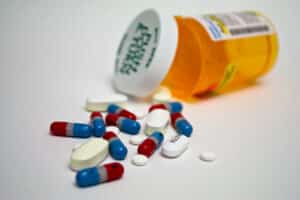
In the previous post, we mentioned the amazing ability of many medical opioid users to stop using, once the condition that causes them pain has healed.
At a certain point during the Vietnam war, the U.S. government discovered that, in country, as many as one servicemember in five was strung out on heroin. Lee N. Robins, a psychiatric researcher for the Nixon administration’s Special Action Office of Drug Abuse Prevention, took charge, and author James Clear wrote this about her:
In a finding that completely upended the accepted beliefs about addiction, Robins found that when soldiers who had been heroin users returned home, only 5 percent of them became re-addicted within a year, and just 12 percent relapsed within three years. In other words, approximately nine out of ten soldiers who used heroin in Vietnam eliminated their addiction nearly overnight.
Alix Spiegel for NPR adds a detail that is not inconsiderable: “Those who were addicted were kept in Vietnam until they dried out.” In other words, the veterans were not just dumped back in the U.S. in a condition of active withdrawal. Psychological addiction notwithstanding, they were, physically, former addicts.
This information throws a whole different light on matters. Where were they detoxed? How long did it take?
Amazing results
Anyway, the followup data collection carried out by Robins showed that close to 90 percent of returning veterans who had been addicts never returned to the habit. This was an unbelievably, miraculously low recidivism rate. At the same time, an opposite numerical ratio was in play. The proportion of garden-variety, civilian American addicts who graduated from rehab and later dived back into their habit approached 90 percent.
Why? Because in the very large majority of cases, a person comes back from drying out or “getting clean” into the same environment where the addiction took hold. This never bodes well. The veterans, on the other hand, who for the most part stayed away from heroin, had the enormous advantage of not returning to Vietnam. The proposition put forward by Robins was that “addictions could spontaneously dissolve if there was a radical change in the environment.”
This highlights the biggest problem with helping obese kids. Even if they attend the best fat camp in the world and lose half their body weight, few children have any choice about where to go from there. Except in very extraordinary circumstances, the child is going to wind up back in the same house with the same parents, siblings, and neighbors, and attending the same school.
Considering the hopelessness of the situation, perhaps taking kids away and putting them in foster homes does not sound so extraordinarily cruel after all.
Your responses and feedback are welcome!
Source: “How Vietnam War Veterans Broke Their Heroin Addictions,” JamesClear.com, undated
Source: “What Vietnam Taught Us About Breaking Bad Habits,” NPR.org, 01/02/12
Photo credit: ep_jhu on Visualhunt/CC BY-NC-ND

 FAQs and Media Requests:
FAQs and Media Requests: 











